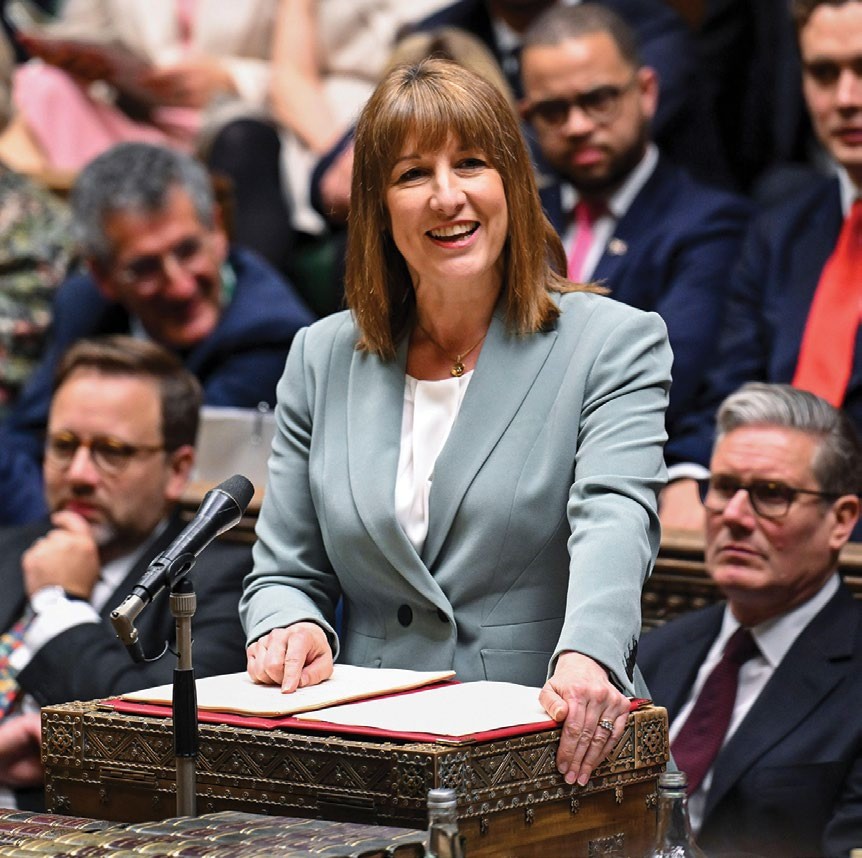Why Nick Clegg's housing scheme won't work
The coalition's latest scheme to put housing within reach of first-time buyers is so ridiculous, it's easy to lose track of the many reasons why it can't work. So, here's a list.

Get the latest financial news, insights and expert analysis from our award-winning MoneyWeek team, to help you understand what really matters when it comes to your finances.
You are now subscribed
Your newsletter sign-up was successful
Want to add more newsletters?

Twice daily
MoneyWeek
Get the latest financial news, insights and expert analysis from our award-winning MoneyWeek team, to help you understand what really matters when it comes to your finances.

Four times a week
Look After My Bills
Sign up to our free money-saving newsletter, filled with the latest news and expert advice to help you find the best tips and deals for managing your bills. Start saving today!
John Stepek wrote a humdinger of a Money Morning this morning: This crackpot scheme proves that British houses are too expensive. One tweet even called it "his best essay yet". So what kicked off this particular bit of brilliance?
You can read it here but it was of course the idiotic suggestion from the Lib Dems that those with pension savings should use them to secure mortgages for their offspring in order that those offspring are better able to participate in the Ponzi scheme that is the UK property market.
John covers most of the problems with the idea in his piece, but it is so very stupid that more keep popping up. To help you keep track, here is a short and no doubt far from complete list.
MoneyWeek
Subscribe to MoneyWeek today and get your first six magazine issues absolutely FREE

Sign up to Money Morning
Don't miss the latest investment and personal finances news, market analysis, plus money-saving tips with our free twice-daily newsletter
Don't miss the latest investment and personal finances news, market analysis, plus money-saving tips with our free twice-daily newsletter
Even if those with pension pots wanted to help their children out this way there is no need for this change. In the UK, investors can already take their 25% tax-free lumpsum at 55. It is hard to imagine that too many of them have children who want to buy houses before their parents hit this age. The fact that the Lib Dem spokesman floating the arguments claims a mere 12,500 people would take part shows just how very pointless it is.
At the moment, it is specifically prohibited in UK law for a charge to be put against a pension. So as Tom McPhail at Hargreaves Lansdown points out, this would need a change in legislation. And of course, once the door is opened to third parties having charges over pensions it is hard to see how it would be closed.
Note too that new legislation means more rules and more interference from HMRC. I can't imagine anyone is really up for that.
Another from Hargreaves most people are already horribly exposed to the housing market via their own house and mortgage. Suggesting they double up via their kids is not good financial planning. Indeed, as one reader notesunder John's piece, if an independent financial advisor(IFA) suggested anything similar, we'd all be absolutely horrified.
How will the moneyused to guarantee the loan be dealt with? Presumably, if it is guaranteeing a mortgage, most lenders won't tolerate it being used to take any capital risks. Will it therefore have to be held in cash with all the corresponding impact on long-term investment returns?
It solves the wrong problem. The problem is not so much that young people don't have enough money (that's another issue), but that, thanks to the asset-price inflation Western governments have encouraged for decades, house prices are too high.
It assumes that house prices will rise. They probably won't. People coming up to retirement are short of pensions savings already. If they do this, they could end up even shorter. A spokesperson from theNational Association of Pension Funds(NAPF) points out that "the Government has already looked at letting people have early access to their pensions and decided against it. People need to keep their pension for their retirement, especially with rising longevity and the costs of long-term care". Quite.
Most people have more than one child. Think of the family rows.
Get the latest financial news, insights and expert analysis from our award-winning MoneyWeek team, to help you understand what really matters when it comes to your finances.

-
 13 ways to get a tax-free income every year
13 ways to get a tax-free income every yearMillions more people are paying income tax as a result of frozen thresholds. But there are still more than a dozen ways to generate an income legally without handing over any of it to HMRC.
-
 When is the Spring Statement and what's expected in it?
When is the Spring Statement and what's expected in it?The Spring Statement might have less of an impact than the Budget, but the annual fiscal event is still key to understanding what is happening in the UK economy and where it’s headed
-
 Beating inflation takes more luck than skill – but are we about to get lucky?
Beating inflation takes more luck than skill – but are we about to get lucky?Opinion The US Federal Reserve managed to beat inflation in the 1980s. But much of that was down to pure luck. Thankfully, says Merryn Somerset Webb, the Bank of England may be about to get lucky.
-
 Rishi Sunak can’t fix all our problems – so why try?
Rishi Sunak can’t fix all our problems – so why try?Opinion Rishi Sunak’s Spring Statement is an attempt to plaster over problems the chancellor can’t fix. So should he even bother trying, asks Merryn Somerset Webb?
-
 Young people are becoming a scarce resource – we should value them more highly
Young people are becoming a scarce resource – we should value them more highlyOpinion In the last two years adults have been bizarrely unkind to children and young people. That doesn’t bode well for the future, says Merryn Somerset Webb.
-
 Ask for a pay rise – everyone else is
Ask for a pay rise – everyone else isOpinion As inflation bites and the labour market remains tight, many of the nation's employees are asking for a pay rise. Merryn Somerset Webb explains why you should do that too.
-
 Why central banks should stick to controlling inflation
Why central banks should stick to controlling inflationOpinion The world’s central bankers are stepping out of their traditional roles and becoming much more political. That’s a mistake, says Merryn Somerset Webb.
-
 How St Ives became St Tropez as the recovery drives prices sky high
How St Ives became St Tropez as the recovery drives prices sky highOpinion Merryn Somerset Webb finds herself at the epicentre of Britain’s V-shaped recovery as pent-up demand flows straight into Cornwall’s restaurants and beaches.
-
 The real problem of Universal Basic Income (UBI)
The real problem of Universal Basic Income (UBI)Merryn's Blog April employment numbers showed 75 per cent fewer people in the US returned to employment compared to expectations. Merryn Somerset-Webb explains how excessive government support is causing a shortage of labour.
-
 Why an ageing population is not necessarily the disaster many people think it is
Why an ageing population is not necessarily the disaster many people think it isOpinion We’ve got used to the idea that an ageing population is a bad thing. But that’s not necessarily true, says Merryn Somerset Webb.